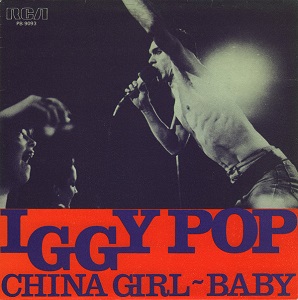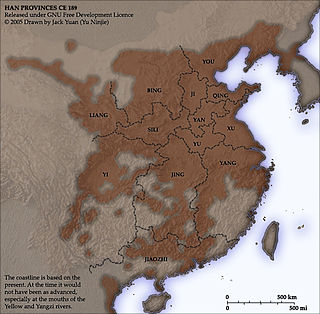
Dwight David Eisenhower, nicknamed Ike, was an American military officer and statesman who served as the 34th president of the United States from 1953 to 1961. During World War II, he served as Supreme Commander of the Allied Expeditionary Force in Europe and achieved the five-star rank as General of the Army. Eisenhower planned and supervised two of the most consequential military campaigns of World War II: Operation Torch in the North Africa campaign in 1942–1943 and the D-Day invasion of Normandy in 1944.

Henry Alfred Kissinger is an American diplomat, political scientist, geopolitical consultant, and politician who served as United States secretary of state and national security advisor under the presidential administrations of Richard Nixon and Gerald Ford. For his actions negotiating a ceasefire in Vietnam, Kissinger received the 1973 Nobel Peace Prize under controversial circumstances.

Li Lianjie, better known by his stage name Jet Li, is a Chinese-born Singaporean martial artist, former Wushu champion, film actor, film producer, and philanthropist. He is widely regarded as one of the most iconic Chinese film stars and one of the most renowned martial arts stars of his generation.

The Northern Expedition was a military campaign launched by the National Revolutionary Army (NRA) of the Kuomintang (KMT) against the Beiyang government and other regional warlords in 1926. The purpose of the campaign was to reunify China, which had become fragmented in the aftermath of the Revolution of 1911. The expedition was led by Generalissimo Chiang Kai-shek, and was divided into two phases. The first phase ended in a 1927 political split between two factions of the KMT: the right-leaning Nanjing faction, led by Chiang, and the left-leaning faction in Wuhan, led by Wang Jingwei. The split was partially motivated by Chiang's Shanghai Massacre of Communists within the KMT, which marked the end of the First United Front. In an effort to mend this schism, Chiang Kai-shek stepped down as the commander of the NRA in August 1927, and went into exile in Japan.

A prefecture-level city or prefectural city is an administrative division of the People's Republic of China (PRC), ranking below a province and above a county in China's administrative structure.

Longyan is a prefecture-level city in south-western Fujian Province, China, bordering Guangdong to the south and Jiangxi to the west.

Wham! were an English pop duo formed in Bushey in 1981. The duo consisted of singers George Michael and Andrew Ridgeley. They were one of the most successful pop acts during the 1980s, selling more than 30 million certified records worldwide from 1982 to 1986.
The Taiwan Democratic Self-Government League (TDSL), also known by its Chinese abbreviation Taimeng, is one of the eight minor political parties in the People's Republic of China under the control of the Chinese Communist Party. It was founded in the then-British colony of Hong Kong in November 1947, by members of the Taiwanese Communist Party who survived the February 28 incident.

The First United Front, also known as the KMT–CCP Alliance, of the Kuomintang (KMT) and the Chinese Communist Party (CCP), was formed in 1924 as an alliance to end warlordism in China. Together they formed the National Revolutionary Army and set out in 1926 on the Northern Expedition. The CCP joined the KMT as individuals, making use of KMT's superiority in numbers to help spread communism. The KMT, on the other hand, wanted to control the communists from within. Both parties had their own aims and the Front was unsustainable. In 1927, KMT leader Chiang Kai-shek purged the Communists from the Front while the Northern Expedition was still half-complete. This initiated a civil war between the two parties that lasted until the Second United Front was formed in 1936 to prepare for the coming Second Sino-Japanese War.

"China Girl" is a song written by Iggy Pop and David Bowie in 1976, and first released by Pop on his debut solo album, The Idiot (1977). Inspired by an affair Pop had with a Vietnamese woman, the lyrics tell a story of unrequited love for the protagonist's Asian girlfriend, realizing by the end that his Western influences are corrupting her. Like the rest of The Idiot, Bowie wrote the music and Pop improvised the lyrics while standing at the microphone. The song was released as a single in May 1977 and failed to chart.

The Parthian Empire, also known as the Arsacid Empire, was a major Iranian political and cultural power in ancient Iran from 247 BC to 224 AD. Its latter name comes from its founder, Arsaces I, who led the Parni tribe in conquering the region of Parthia in Iran's northeast, then a satrapy (province) under Andragoras, who was rebelling against the Seleucid Empire. Mithridates I greatly expanded the empire by seizing Media and Mesopotamia from the Seleucids. At its height, the Parthian Empire stretched from the northern reaches of the Euphrates, in what is now central-eastern Turkey, to present-day Afghanistan and western Pakistan. The empire, located on the Silk Road trade route between the Roman Empire in the Mediterranean Basin and the Han dynasty of China, became a center of trade and commerce.

The Great Wall of China is a series of fortifications that were built across the historical northern borders of ancient Chinese states and Imperial China as protection against various nomadic groups from the Eurasian Steppe. Several walls were built from as early as the 7th century BC, with selective stretches later joined by Qin Shi Huang (220–206 BC), the first emperor of China. Little of the Qin wall remains. Later on, many successive dynasties built and maintained multiple stretches of border walls. The best-known sections of the wall were built by the Ming dynasty (1368–1644).
The China national under-23 football team, also known as the China Olympic team (国奥队), represents the People's Republic of China in international football competitions in the Olympic Games, Asian Games, as well as any other under-23 international football tournaments. It is governed by the Chinese Football Association (CFA). It combines two teams: China U-23 national team and China U-21 selection team.
The China men's national tennis team represents the People's Republic of China in Davis Cup tennis competition and are governed by the Chinese Tennis Association. It was represented by the Republic of China from 1924-1946. The team did not participate between 1946-1983, and in 1983 the People's Republic of China competed for the first time.
Zhang Ailing is a retired badminton player from China.
Gha-Mu, often translated as Small Flowery Miao, is a Miao language of China spoken by the Gha-Mu people. It is closely related to the Hmong dialects of China and Laos; both Gha-Mu and Hmong are members of the Chuanqiandian cluster of West Hmongic languages. It is spoken in Nayong, Shuicheng, Zhenning, Guanling, and Hezhang counties of western Guizhou, China.

Vietnam under Chinese rule or Bắc thuộc refers to four historical periods when several portions of modern-day Northern Vietnam was under the rule of various Chinese dynasties. Bắc thuộc in Vietnamese historiography is traditionally considered to have started in 111 BC, when the Han dynasty conquered Nanyue and lasted until 939, when the Ngô dynasty was founded. A fourth, relatively brief, 20-year rule by the Ming dynasty during the 15th century is usually excluded by historians in their discussion of the main, almost continuous, period of Chinese rule from 111 BC to 939 AD.

The president of the People's Republic of China, commonly called the president of China, is the state representative of the People's Republic of China, which practices the system of people's congress. This system is based on the principle of unified power in which the National People's Congress (NPC) functions as the only branch of government and as the highest state organ of power. The presidency is a state organ of the NPC and equivalent to, for instance, the State Council and the National Supervisory Commission, rather than a political office, unlike the premier of the State Council. Together with the NPC Standing Committee, the presidency performs certain heads of state functions. The president can engage in state affairs with the consent of the NPC Standing Committee. While the presidency is not a powerful organ in itself, since 27 March 1993, the president has concurrently served as general secretary of the Central Committee of the Chinese Communist Party (CCP) and chairman of the Central Military Commission, making the incumbent China's paramount leader. Xi Jinping, the incumbent president, also serves as commander-in-chief.

Eastern Han Chinese, Later Han Chinese or Late Old Chinese is the stage of the Chinese language revealed by poetry and glosses from the Eastern Han period . It is considered an intermediate stage between Old Chinese and the Middle Chinese of the 7th-century Qieyun dictionary.
The Asian Badminton Championships 1983 took place from 1 to 8 December in Calcutta, India. Both individual competitions and men's team competitions were conducted. At the end of the day, China took titles from four disciplines, Men's singles, Men's doubles, Women's doubles and Men's team competitions while South Korea won Women's singles and Mixed doubles events.














